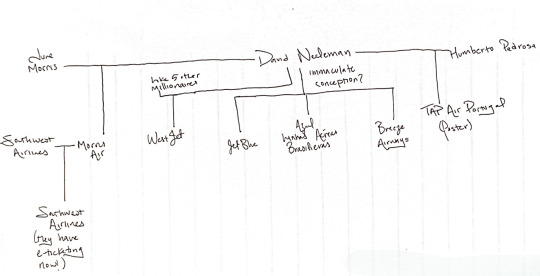#Pre-1967 Border
Text
May 15 Nakba Day Amman Jordan
Nakba Day 2023 – Radio Pakistan
Yesterday was the 75th anniversary of The Nakba “catastrophe,” when Palestinians experienced the “dispossession and loss of their homeland”. Amman has a large Palestinian population, and throughout the day, lamented messages echoed from mosques in the city. They were especially noticeable after dusk. I didn’t understand exactly what was being said, but the words…

View On WordPress
#Amman jordan#‘Yom Ha’atzma’ut’#British Mandate of Palestine#Gaza#Gaza Strip#Historic Palestine#Israel and Palestine 1949 Armistice Line#Israel UN Ambassador Gilad Erda#Israeli Independence Day April#Mahmoud Abbas#Mohammed Haddad#Nakba Catastrophe#Nakba Day 2023#Palestinian Arab and Jewish States#Palestinian Authority President Mahmoud Abbas#Palestinian Refugee Camps#Palestinians#Paphos Cyprus#Pre-1967 Border#Rashid Khalidi Middle East Historian and Author of The Hundred Years’ War on Palestine#Riyad Mansour Palestinian Envoy to the UN#The Arab-Israeli War of 1948#The Green Line Boundary Israel and West Bank#Ukraine UN Ambassador to Israel Yevgen Korniychuk#UN Committee on the Exercise of the Inalienable Rights of the Palestinian People (CEIRPP#West Bank#Zionist Military Forces
2 notes
·
View notes
Text
During the recent “March for Israel” in Washington, DC, Al Jazeera interviewed a confident young man from Connecticut about the war in Gaza. Draped in an Israeli flag, Charlie appeared ready to answer any question.
He made it clear from the outset that the ongoing war is not “Hamas vs Israel”, but “Hamas vs the whole world”. He said he regrets children’s deaths and prays for innocent lives lost. But he had no doubt about who is responsible for the death of civilians in Gaza. While Israel does everything to avoid civilian casualties, he said, Iran-backed Palestinian terrorists bomb their own hospitals, use civilians as human shields, and even place kids next to rocket launchers. Iran and its proxies are the source of all evil in Palestine and the region, he added.
Charlie has clearly done his homework. He has studied the Israel Project’s “Global Language Dictionary [PDF]”, memorised its lines, and repeated them verbatim, not missing a beat. The playbook was created in 2009 after Israel’s first war on the besieged Gaza Strip, to guide Israel’s supporters on how best to speak to the media about the conflict. Inspired by Israel’s leading spin doctors, such as Shimon Peres and Benjamin Netanyahu, it is directed at young activists, as well as politicians, pundits, journalists and more. It tells its readers what to say, and what not to say, alerting them to words that should be used and others that mustn’t.
One of my favourite tidbits in the playbook, as I wrote back in 2014, goes like this: “Avoid talking about borders in terms of pre- or post-1967, because it only serves to remind Americans of Israel’s military history. Particularly on the left, this does you harm.” And when civilian casualties mount during wartime in Gaza, the playbook recommends talking empathetically along these lines of “All human life is precious”, but emphasising that “it is a tragedy that Iran-backed Hamas shoots rockets at our civilians while hiding in their own” and that this “causes tragic deaths on both sides”.
Sounds familiar?
. . . continues on Al Jazeera (20 Nov 2023)
PDF of the Israel Project’s "Global Language Dictionary"
#palestine#israel#gaza#i've been skimming through the global language dictionary and it's very eye opening#it's the same taking point you see repeated by zionists everywhere#of course only a handful of them will have read the actual dictionary but they've had these arguments spoon-fed to them by politicians#media personalities etc.
2K notes
·
View notes
Text
DECOLONIZE PALESTINE!
White Eurocentrists are working overtime to colonize Middle Eastern politics, undermine national sovereignty and the rule of law, and make wars longer and deadlier.
The whole point of the ICC's existence is that it can intervene in countries that don't have independent court systems. In addition to Israel not being a party to the ICC anyway, past ICC leaders have said the Israeli court system is perfectly capable of prosecuting their own criminals - it isn't like some anarchic ex-Libyan splinter-statelet or eastern European dictatorship where all the judges are just store mannequins with the leader's face on them. Netanyahu is under active criminal indictment, his judicial overhaul FAILED. For the ICC to step in anyway completely undercuts their own value proposition and reason for existence, and also makes clear that having an independent court system doesn't matter at all AND ISN'T WORTH FIGHTING FOR. But, uhhhh, people should totally still act like their judgments are morally serious!
And then a bunch of Europeans went and "recognized" Palestine, even though Palestine does not have control of its borders, does not have unified leadership, does not have a monopoly of force... what the fuck are they "recognizing"? Why don't they just give a Grammy Award to Palestine as being the best new album? They are corroding language to a point where it means utterly nothing, but expecting us to take it seriously all the same. Oh and they "recognize" Palestine on the "pre-1967 borders," which don't exist, because the armistice - WHICH WAS INTERNATIONAL LAW - flatly says the armistice lines are not national borders and that national borders can only be established by direct negotiations. Europeans ignore the international law set up by Middle Easterners so they can center the process around themselves. (Flashback to COVID vaccine controversy: the international law signed between Israel and Palestine says the latter is responsible for its own vaccines, but Europeans want everybody to talk about the laws signed in Switzerland).
Right after Trump won in 2016, the Obama Administration signed off on a UNSC resolution saying all Israeli presence beyond the armistice line was illegal - thus totally abandoning the "land swaps" framework that all sides had acknowledged for 30+ years. Who could ever expect a Palestinian to negotiate a land swap ever again once the UNSC and USA all agree that Israel is entitled to nothing? This will make future negotiations HARDER and a future state LESS LIKELY. It is blindingly obvious that if Hillary Clinton had won, USA would never have gone along with such a revision; instead, Obama went panic-shopping for a symbolic victory at any price.
Europe - and, sorry to say, the last few Democratic U.S. presidents - is very clearly sending a message to Palestine: "You will never have to negotiate, just hold out longer and keep fighting and dying more." And also sending a message to Israel: "You can never trust a signed legal agreement, we will undermine any arrangement you make with Palestine." This toxic internationalism leaves peace even less likely.
If Europeans and "peace processors" really want to free Palestine, let them send their armies into Gaza and wipe out Hamas to the last man, seize all the weapons and crush all the tunnels, and help stabilize a new unified Palestinian leadership. That is the ONLY intervention they could attempt that would possibly help at all.
#palestine#gaza#imperialism#eurocentrism#international criminal court#spain#norway#israel#colonialism#lawfare
125 notes
·
View notes
Text
There is a post circulating that looks like this:

and it is fucking FULL of hasbara bullshit. I don't know if the person themselves is a psyop or whether they've just been brainwashed but eh, the result is the same
I'm too fucking tired to do an essay about it, so here are some key points of bullshittery, paraphased:
The most important thing is that it omits the cruelty, brutality, theft, segregation, etc that Israelis exacted against Palestinians and continue to do now. DAILY settlers harass and steal from Palestinians in the west bank. PRE Oct 7 nearly 200 Palestinians had been killed there JSUT THIS YEAR. Gaza was under blockade by Israel, they controlled everything going in and out and killed commerce there, made them dependant on handouts. Israelis go into Palestinians' houses in East Jerusalem and just fucking steal them! Kick out the people there! The IDF and police support Israelis doing this. Any nation doing this needs to seriously ask themselves a question of "what the fuck are we doing"?
'only 15,000 people died in the nakba, the catastrophe of it is greatly exaggerated' - 750,000 Palestinians were displaced, either by force or because Israel made an example of a couple of towns by brutully, brutally torturing and killing and raping Palestinians there so people fled. They had their land, property and wealth STOLEN. A whole population of people had their wealth and land stolen. This is something that is CONTINUING TO THIS DAY.
'Arabs participate in life and parliament and this is evidence of exaggeration of the criticism' that's like saying we have a few women in government so sexism is cured
Presentation of the 1967 Palestine borders as agreed by the UN as if it's the perfect fair solution when the borders are basically around the least arable land with the least amount of water
Criticism of Israel dismissed as antisemitism which ex Mossad agents have confirmed is a deliberate tactic to silence dissent and criticism
Presenting Hamas as the enemy of Palestinians which is just not the case, Hamas is the government of Gaza and like any government, people's views and opinions sometimes align with them and sometimes don't. Some people think they are heroes, other people think they are a barrier to peace. What they definitely are are resistance fighters fighting against a violent oppressor. Israel is a violently oppressive and racist state. The enemy of Palestinians is not Hamas, it is fucking Israel.
'Palestine didn't have a government we recognize as a government before we came so that justifies us taking over'
'We have some ancestry in this place so all of us are indigenous to it and have a right to run the place' - self-explanatory. Lots of ancestral Irish folks around the world. Should we all just go take over Ireland?
God, this post. Go read it. See how mild and acceptable hasbara is? This is the shit they're peddling and it's one-sided and omits SO many important details.
The only thing I agree with is that it is cruel and unrealistic to remove the people who are living in places now (where their property wasn't directly stolen from a family with living descendants!!!) removing millions of people would be another mass cruelty that would traumatize children etc. But yeah, any solution needs to be JOINTLY AGREED WITH BY PALESTINIANS. NOT FOR THEM.
like OP talks about confirmation bias but like all these half-facts they're accepting without examination are exactly fucking that. I doubt they've listened with an open mind to a single Palestinian and they definitely aren't 'seeking out content that doesn't confirm their biases' because the Palestinian voice is COMPLETELY absent from their oh-so carefully written post.
Everything I've said here is googleable so go for your life.
77 notes
·
View notes
Note
I agree with all your sentiments regarding Hamas and Palestine and hate Israel, but genuine question... do you seriously think the civilians killed near Gaza are "settlers"? Because there haven't been any settlers near or in Gaza since 2005. Those are people living on the Israeli side of the border. People who lived on the Pre-1967 borders.
Unless you mean to argue that every single Israeli is a settler colonialist, not just those in the West Bank.
You can't just forget about the Nakba, anon. But to appeal to your argument, Sderot is a city near Gaza that was built on an Arabic city called Najd. The Palestinians living there were expelled by the Zionist paramilitary during operation Barak. That city in itself is a colonial settlement, and the one place where... you know... the settlers watch rockets fly into Gaza
138 notes
·
View notes
Text
Racist Israeli ambassador to the UK, Tzipi Hotovely, states the true position of the Israeli government, which is to reject the idea of a two-state solution, while calling all Palestinians radical.
Remember, the Palestinian Authority has agreed since 1967 to a two-state solution based on the borders recognized by the international community and the UN (despite the inherent injustice of that resolution, which would deny Palestinians the right of return to their lands pre-1948).
It is Israel that has made a peace deal impossible for the past 56 years by building more and more illegal settlements on designated Palestinian land in the West Bank since Day 1, while asking for more concessions from the Palestinian side every round of ‘peace talks’, including accepting less land, less sovereignty, no control over its own borders, complete de-militarization and permanent subjugation to the Israeli state.
The irony of this interview is that Hotovely claims that Palestinians are radical for wanting a single state from the river to the sea, while announcing to the world that that is exactly what she wants for the Israeli state. The only difference is that in her version, the Palestinians are either non-citizens who live in apartheid for eternity, or are kicked out and driven off their lands altogether, while Palestinians want one democratic state for all citizens.
Via hiddenpalestine
Also a tweet by israeli communications minister and member of Netanyahu's Likud party: "There will be no Palestinian state here. We will never allow another state to be established between the Jordan and the sea."

52 notes
·
View notes
Text
The story Southeast Asia likes to tell itself is that, by the late 1990s, it had something like its “end of history” moment.
By 1999, the region was free of colonialism, with the last push made by Timor-Leste, which that year held a referendum to throw off Indonesian imperialism. With that development, the region’s national borders appeared to be finally decided and revanchism, although it was still voiced on the fringes, had ended.
All Southeast Asian countries, except Timor-Leste, were members of ASEAN. Communist Vietnam and Laos were stable and internationally accepted. Anti-communist tyrants like Indonesia’s Suharto, Burma’s Ne Win and Ferdinand Marcos in the Philippines had either resigned or been ousted.
And the worst crimes of the Cold War-era, including the Khmer Rouge genocide in Cambodia, were not just over but there was to finally be some sort of justice. In 1999, the holdout Khmer Rouge leaders finally surrendered and Ta Mok, its former army chief, was symbolically arrested by the local authorities.
Today, however, Southeast Asia finds itself trapped by history.
On the one hand, it became evident in February 2021 that not all of 20th-century history was over. The military coup in Myanmar that month awakened many to the reality that some elements of the pre-Cold War period had not been solved.
Indeed, Myanmar has been trapped in the early 20th century since independence from Britain in 1948. Whereas all other Southeast Asian threw off their colonial powers and then resolved their internal battles over what form of government would follow, Myanmar did not.
Myanmar as outlier
Anti-colonial struggles are conflicts against a foreign aggressor and civil wars at the same time. It is not enough to claim self-determination; it must be determined what sort of self you want once free.
The partition of Vietnam was both things at once. Many historians date the Cambodian Civil War as beginning in either 1967 (with the Samlaut Uprising) or 1979 (with the Lon Nol “coup”) but those same political schisms were latent, though blanketed, under Nordom Sihanouk’s regime that ruled after independence.
The People’s Power uprising in the Philippines in 1986 was essentially the answer to the question — constitutional or personalist rule — that was posed when the country gained independence from Spain in 1898, and, indeed, was the internal debate within almost all of José Rizal’s writings.
But Myanmar never went through this process — or, rather, successive military juntas never allowed the question to be seriously explored. The 1962 coup effectively froze in time the question of self-determination of Myanmar’s myriad ethnic minorities, a remnant of colonial rule.
In two ways, Myanmar under the military remained a colonial holdout: The Bamar center colonized the ethnic periphery and the anti-colonial struggle was never allowed to fully run its course. The cataclysm of the 2021 military coup appears to be the event that will finally bring this historical question to a proper solution.
The answer offered by the anti-junta movement, centered on the National Unity Government, is a revolutionary federal state, in which Myanmar maintains its same territorial borders but vastly more power and autonomy is given to the ethnic areas, while at the same time the national army, a product of anti-colonialism, will be dissolved and something (perhaps a network of militias) will take its place.
The junta’s answer, the same that its predecessors offered, is devolution based on the permission of a central authority, implemented through peace talks. The problem with this answer, as has been the case in the past, is that it is dependent not upon rules or laws but the whims of whichever general is sitting in Naypyidaw, so essentially yet another delay in answering the post-colonial civil war question.
Yet, for now at least, according to some hopeful observers, the forces of revolution are prevailing over the forces of reaction in Myanmar.
Baked-in crisis
Alas, the rest of Southeast Asia seems unwilling to accept that a historical reckoning must happen in Myanmar for there to be any progress.
One can put aside the fatuousness of permitting Myanmar entrance into ASEAN in 1997 before those civil-war conflicts were solved, yet ASEAN still doesn’t accept that by doing so it institutionalized those conflicts into the regional system.
In other words, by accepting Myanmar into the ASEAN bloc, the rest of the region (perhaps) unwittingly accepted a share of responsibility for solving those historical conflicts. This point is still not appreciated by ASEAN in its continued insistence that the solution to the current crisis is to return to a point in time: the status quo ante.
Yet, even if that return was feasible, which it isn’t, ASEAN would still be left with the situation of Myanmar’s 20th-century conflicts sparking another similar crisis at some point in the future.
ASEAN is, therefore, trapped in apparently thinking that Myanmar is unique in that it won’t have to go through the same bloody processes that the rest of the region did — a final reckoning of post-colonial civil wars — and clearly thinks that the region’s responsibility is to forestall, not assist, this process.
On the other hand, Southeast Asia is also in a history trap of believing that the post-Cold War era is still alive.
It can be fairly said that the region, aside from China, was the biggest beneficiary of the world order left after the collapse of communism in Europe. A cursory look at how the region has developed economically, culturally and socially since 1989 is enough to make that argument.
But what should we call the period between 1989 and, roughly, 2019? The “Chimerica Era”, that chimera when the United States and China thought they could get along and when the West thought that Beijing was playing by the same rules? Or, perhaps, the “Inter-Cold War Era?”
Nostalgia not enough
In any case, that period is now over. Yet, Southeast Asia’s leaders still think that they can deny its disappearance by repeatedly stating their opposition to what has come after – a “New Cold War” – as if denying something’s existence makes it not exist.
They hold onto the hope that Washington and Beijing will finally see sense and agree that because things were much better for all in the 2000s that should be their shared vision for the future.
If there is a purpose to “hedging”, it is presumably to play both superpowers off against one another to extract the most benefits. Yet the downside is that you make yourself dependent on both sides, as has been the case: As a share of overall ASEAN trade, the United States and China have taken on a larger, not smaller, percentage in recent years.
Hedging, as manifested today, is to take both sides, rather than to take neither side. That is problematic, to say the least, if there is a possibility of both sides going to war, when you will be forced by events outside your control and at a time not of your choosing to decide which side to take.
None of this is unreasonable from an emotional level; it’s only natural for Southeast Asian leaders, by 1999, to have been jubilant that the horrors of the 20th century were over and that their societies could finally have the stability to become prosperous – thanks to the Inter-Cold War Era.
It’s only natural to want the good times to continue. Sadly, they’re over and the world is once again a far more unstable and unpredictable place, including in ASEAN’s northwest. Nostalgia for times past will only get you so far.
David Hutt is a research fellow at the Central European Institute of Asian Studies (CEIAS) and the Southeast Asia Columnist at the Diplomat. As a journalist, he has covered Southeast Asian politics since 2014. The views expressed here are his own and do not reflect the position of Radio Free Asia and RFA sister organization BenarNews.
45 notes
·
View notes
Text
by David Solway
Despite all the pitfalls on the long journey to statehood, on May 11, 1949, the UN General Assembly, by the requisite two-thirds majority, approved the application to admit Israel to the UN by General Assembly Resolution 273. We should consider, too, aside from the legal documentation we are examining here, that Israel is replete with stories, memorial scriptures and artifacts from pre-Biblical times and possesses a calendar that dates to 5783. Israel’s existence is not only official but immemorial.
Following Israel’s victory in the Six-Day War and its acquisition of territory, anti-Zionists demanded that Israel return to its shrunken 1967 borders, proclaiming their opposition to “the immoral and impractical policies that deny Palestinians equal rights,” calling for an end to “the siege on Gaza” and for “a permanent ceasefire,” and putting the onus on Israel to comply. Jimmy Carter’s mendacious book "Palestine: Peace Not Apartheid" is worth examining in some detail. Among the weave of falsehoods that bind its pages, we find that UN Resolution 242 demands that Israel return to Palestinians all land captured in the 1967 war.
This is utter fiction. Carter and his ideological descendants have probably never heard of or paid much attention to Eugene Rostow, former U.S. Undersecretary of State for Political Affairs and one of the leading architects of UN Resolution 242. Rostow explained in The New Republic for Oct. 21, 1991, that the Resolution allows Israel to administer its conquered territories until a just and lasting peace in the Middle East is achieved and that “the Jews have the same right to settle there as they have to settle in Haifa.”
Further, no Palestinian leader and few Western pundits have acknowledged the raw fact that there are no 1967 borders to which Israel is required to return. In fact, there are only armistice lines that have no bearing on future negotiations to determine final borders. The late Hugh Foot, Lord Caradon, formerly Britain’s ambassador to the United Nations and, along with Rostow, one of the drafters of Resolution 242, stated in the Beirut Daily Star on June 12, 1974, that “It would have been wrong to demand that Israel return to its positions of June 4, 1967, because those positions were undesirable and artificial.”
Lord Caradon’s account of the meaning and history of the Resolution is supported by the remaining two framers, Arthur Goldberg and Baron George-Brown, who are equally explicit in asserting its original intention. Resolution 242 is a pro-Israel and not, as constantly misreported, a pro-Palestinian article. Yet in the interests of peace, Israel has fruitlessly surrendered much of its war gains in Gaza and the West Bank, creating unnecessary misery for itself.
It follows that Israel’s enemies, and antisemites in general, are either credulous or savage or both. Generally speaking, their leaders are political operators with gelatinous souls, concerned mainly for their personal safety and privilege and cathected on the Islamic voting bloc. Moreover, far too many ordinary citizens are unable to distinguish between a forgery (e.g., "The Protocols of the Elders of Zion") and a scrupulous work of historical documentation (e.g., the aforementioned "From Time Immemorial"). They are culpably deaf and blind, as Richard Ibrahim indicates, to the purport of an ISIS audio recording titled And Kill Them Wherever You Find Them (Koran 9:5) that pronounces the jihadist worldview of Islam: “The battle with the Jews is a religious one and not a national or populist one! It is not a battle for land, soil, or borders! In fact, it is a war that is legitimized by the Book and the Sunnah.”
28 notes
·
View notes
Note
So again what do you fucking suggest? Pre-1967 borders? Those weren't good enough? 1948 partition? Those weren't good enough. Being an actual direct native of the region, unrelated to the Zionist project? That wasn't good enough. Assimilating into western society and giving up on national identity and self-determination? That wasn't good enough. You can excuse the behavior of Hamas, or the Houthis, or any other Arab nationalist or Islamist movement, but nothing Jews do will ever be good enough.
There’s that equivocating between Israel and all Jews again—that thing which is a nakedly anti-Semitic line except I guess when Israeli nationalists do it.
Israel could unilaterally withdraw from the West Bank and Gaza tomorrow and recognize Palestine as a state, then restart the Oslo peace process. Literally nothing is stopping them except that they don’t want to, because that territory is economically useful, and the Israeli right is invested in annexing it. That would be a massive deescalation of the whole conflict, and the only obstacle is Israeli domestic politics.
31 notes
·
View notes
Text
This'll probably be my final post on this subject, tbh, it's exhausting. Also, it's long. TW: Oppression, anti-Palestinian racism, antisemitism, settler-colonialism, pogroms.
EMBRACE COMPLEXITY. TURN AWAY FROM SIMPLISTIC NARRATIVES.
A lot of people are treating this like it's a football match, and that their "side" can do no wrong, when in reality it is entirely possible to be aware of and hold both violences in your mind, while also being aware of the power dynamics in play.
For Jews, this is the largest pogrom since the Shoah. (And yes, I'm calling it a pogrom. That seems more accurate to me than "terrorist attack".) The terror and distress resulting from that is built on millennia of pogroms, not just settler fears the way white USAmericans would fear a reprisal from Indigenous people. Half of all Jews in the world live in Israel, and nearly every Jewish person in the world at least knows someone who's lost someone in this attack. The fear is real. As I type this, my aunt and uncle who live in northern Israel were instructed to shelter in a safe room because a Hezbollah [Edit: Hamas] bomb was just dropped on the Ofer Forest.
For Palestinians, armed reprisal was pretty much the only option left after decades of apartheid and oppression by the Israeli government. Just in 2014, for example, Operation Protective Edge killed over 2000 Palestinians, most of whom were civilians. Even in reaction to this very attack, the Israeli government's response was to commit a war crime and impose a total blockade on Gaza, blocking food, water, medicine, fuel, and electricity to approximately 2.3 million people. The fact that they even can do that speaks to the tremendous power imbalance at play, to say nothing of Israel's alleged nuclear capabilities that I'm sure the USA knows absolutely nothing about because if they did Israel would be in violation of nuclear nonproliferation treaties and the US would be obligated to sanction them.
So, I honestly don't know what to say. I don't want to say "it's different when Palestinians do it", because at the end of the day it was still a pogrom, and it's hurt more non-IDF Jews than any single attack since the Shoah, and a lot of people are in mourning. But I also don't want to say "how dare they, I condemn this," because what the hell else are Palestinians supposed to do? They have a fundamental right to live freely and equally in Palestine. They've tried everything else, and the Israeli government's response has consistently been to just bomb the shit out of Gaza, or flood the West Bank with settlers and soldiers, or deny life-sustaining utilities that Israel controls like water and electricity to millions of people. What else is left but armed resistance, at that point?
I mean, shit, we could question whether Hamas really represents the interests of the Gazans it governs or not, or we could debate whether their constitution change in 2017 (they scrubbed most of the religious wording, explicitly denounced antisemitism and specifically condemned colonialism, and even expressed a willingness to acknowledge pre-1967 Israeli borders) is sincere, or whether branding them as simply terrorists is in any way useful, or we could even talk about how Netanyahu supported the funding of Hamas to sap support from Fatah's more progressive stance and forestall any real dialogue.
Or we could debate the concept of "civilian" in a settler colony where the only reason Israeli civilians can even live there as Israelis is through the brutal violence inflicted by the IDF, or the dynamics of how a country with mandatory army service for everyone blurs the distinction between soldier and civilian in the first place, or how the Israeli government has gone hard-right over the past year and an attack like this is exactly what Likud needed in silencing dissent within Israel.
(As for my personal opinion, I think the Likud government damn near deliberately provoked this pogrom with their bullshit on al-Aqsa as an opportunity to manufacture outrage and look strong, knowing full well how many people would get hurt, so that the issue of judicial review gets swept under the rug in the fires of war and revenge. The Israeli government cares more about hurting Palestinians and defending the idea of a "Jewish state" than actually protecting Israeli lives, otherwise they'd have been working to de-escalate and end their apartheid decades ago.)
Shit's complicated. But that's fine. People can understand complicated things. It just takes longer than reading something short and quippy, and it requires you to interrogate your own internal narratives for both antisemitism and anti-Palestinian racism. Also, leave people who are in mourning the fuck alone.
27 notes
·
View notes
Text
Passivity is Killing Us
Israel’s defensive strategy in recent years has been primarily passive. Passive defense does not target an enemy, but puts obstacles in his path. Our passive defenses include security barriers on our borders, with a billion-dollar one under and above the ground next to Gaza. We have built a technological marvel of a layered anti-missile defense system. Such means can – sometimes and to some extent – mitigate the damage that an enemy can do, and are an important part of a country’s defensive strategy. But even when they are successful, they do not deter or weaken the enemy. Indeed, they encourage him to improve his technology and his tactics and try again.
In the early days of the State of Israel, there were no Iron Domes or sensor-laden fences. We responded to terrorist attacks by vicious retaliation – for example, by the famous Unit 101, commanded by Ariel Sharon. That is active defense. Active defenses also have a flaw, especially for a country with little strategic depth, which is that an enemy can do a great deal of damage by a surprise attack before a response can be mounted. But an active defense has deterrent power that passive means do not. And, most importantly: a passive defense alone never won a war. The RAF won the Battle of Britain, but it took land invasions from the east and west to defeat the Nazis.
Over-reliance on passive defense can be dangerous. The Maginot and Bar-Lev lines were circumvented, and the Gaza fence penetrated. Iron Dome can be overwhelmed by mass launches of rockets, and is economically unsustainable. Hamas’ success in its murderous attack on southern Israel was made possible in large measure by our overemphasis, over a period of years, on passive tactics. With each round of fighting, Hamas improved its ability to get rockets through the Iron Dome. Because we haven’t seriously tried to destroy its infrastructure, Hamas was able to build and improve the tunnel system that we are now paying in Israeli lives to destroy. And because of our arrogance and overconfidence, the astronomically expensive security barrier proved almost worthless.
And there is another aspect that must be considered: the psychological effect, not just in Israel, but throughout the world. It has become generally accepted that Israel is a target, in way that Russia, for example, could never be. It became understandable that “frustrated” Palestinians could launch thousands of rockets at us while we bombed empty buildings in return, or Houthis in Yemen could launch Iranian missiles at our cities from 2000 km. away. Why not? We didn’t retaliate seriously.
Passive defense is more popular with the international community than active retaliation. You don’t often read in the NY Times or the Guardian about the suffering of the Qassam missiles that are blown to bits by Iron Dome. The world has gotten used to Israel responding in the most measured way to attacks that would cause other nations to strike out viciously, as the US did after 9/11. Although Israel’s record of fighting in populated areas while minimizing civilian casualties is much better than that of any other country, including the US, we receive daily warnings from President Biden to try harder in that respect. The unstated subtext is he can pull the plug on us at any moment.
I do not want to say that our unbalanced defensive posture is anyone’s fault but our own. But it appears to fit American policy, which since 1973 has been that Israel should never be permitted to win a decisive victory, and must return to her pre-1967 size. And the US uses the very powerful lever of military aid to encourage this. It’s easy to get funding for Iron Dome interceptors, but hard or impossible to get bunker busters or tanker aircraft for midair refueling. At this moment, the US Secretary of State is on his way here again to keep a tight rein on us, and an American general is sitting with our Chief of Staff to “help” us manage the war with Hamas.
Our dependence on American military aid and overemphasis on passive defense has gotten us into a very dangerous situation. Not that we can’t defeat Hamas, even though it will be significantly more costly than it would have been in January of 2009 (when Obama’s people told us to get the IDF out of Gaza before the inauguration). The real danger is in the end game, where the US State Department and administration believe they will finally be able to implement their long-sought goal of a unified sovereign Palestinian state in Judea, Samaria, the Jordan Valley, and Gaza, under the control of the PLO.
I won’t speculate today about whether they understand that this would be a major step toward the end of the Jewish state, but that is in fact the case. Israel must do whatever she can to prevent the imposition of this “solution.” The best way to remove the threat from Gaza, to prevent a Palestinian terror state from coming into existence, and to send a message to all of our enemies that we will no longer be a passive target would be to destroy Hamas, to force a large part of the population of the Gaza strip to emigrate, and to establish Israeli control over it.
Can Israel stand up against the US – or at least against powerful circles in the American government? We’d better. Our survival depends on it.
21 notes
·
View notes
Text
Israel Is Expanding Settlements in East Jerusalem at “Unparalleled” Rate
Violent settler activity in the occupied West Bank has also reached a record rate amid the genocide.
In a report published Wednesday, The Guardian revealed that the Israeli government has approved or advanced the building of thousands of housing units, spread over 20 different projects.
The construction is being undertaken in areas of East Jerusalem that were formally annexed by Israeli officials in 1980, following Israel’s occupation of the territory after the 1967 war. The new housing will be available for Jewish settlers to move onto Palestinian land. Different government agencies, sometimes in collaboration with violent right-wing nationalist groups, are behind the projects, with the ultimate goal of expelling Palestinians from their homes and forcibly wresting control over all of Palestine.
At the same time, human rights advocates say that planning and construction of housing for Palestinians has been totally halted.
Human rights experts in Israel say that the rate of projects being approved and moved forward just in the past six months is “unprecedented.”
“The fast-tracking of these plans has been unparalleled in the last six months,” Sari Kronish, a staffer at Israeli human rights group Bimkom – Planners for Planning Rights, told The Guardian. “While many government bodies were shuttered or had limited operation following 7 October, the planning authorities continued to plough forward, advancing these plans at unprecedented speed.”
These plans appear to be timed strategically with the genocide, while Palestinians and foreign governments are likely to be paying more attention to Israel’s indiscriminate slaughter in Gaza.
One of the settlements, for instance, was approved just 48 hours after the October 7 Hamas attack. The project, called Kidmat Zion, is located in the middle of a Palestinian neighborhood in the eastern part of East Jerusalem known as Ras al-Amud.
Another project, known as Givat Shaked, was originally proposed in the mid-1990s, but received planning approval in January of this year after decades of controversy over and international pressure against the plan. The plan encompasses high rises with hundreds of units to be built in the majority Muslim community of Beit Safafa, situated on the Green Line that demarcates the pre-1967 border between Israel and Palestine that Israeli occupiers have worked to blur.
[keep reading]
8 notes
·
View notes
Text
No. 40 - Southwest Airlines

One of my most requested posts, it's time to cover a carrier anyone who's flown in the US is probably very familiar with. After all, Southwest has for decades been the largest low-cost carrier in the world by both revenue and fleet size (though IndiGo is coming for that title).
Southwest's history is longer and more substantial than many may think, a central figure in the genesis of what we now know as the low-cost carrier. But one thing I think a lot of people know is their livery.
A common theme on this blog is trends in airline liveries - in particular, the modern trend towards the minimalist, sterile, underdesigned, and above all generic. As an anecdotal example, someone who lives near Boston's Logan Airport, the 16th-busiest airport in the US and 30th-busiest in the world, served by every major US airline and every major international carrier from countries within 787 range, were they to watch the takeoffs and landings, would be treated to the following...menagerie.



Can you believe these planes fly for different and indeed unrelated airlines?
Safe to say from 5,000 feet below it's a challenge to tell these planes apart. Even taxiing past them you'd need to pay attention. If I forced someone to squint I'm not sure they could identify them properly. How about Southwest?

Bam.
Southwest Airlines was founded in an era that borders on incomprehensible to those of my age bracket. The United States is a nation united in grumbling about Spirit Airlines, and most of Europe is constantly cursing Ryanair under their breath, but it wasn't always like that. The fact of a united enemy at all is new in the US. Back before the 1978 Deregulation Act, it was so prohibitively expensive to operate interstate flights that most airlines just didn't. Interstate flights were left to giant full-service airlines like Delta and Eastern, while international flights were the domain of an even more elite few - Pan Am, TWA, Braniff, and National (no, not that National, the other one) while the scrappier little companies flew short hops for commuters.

One airline which emerged in this pre-deregulation era was Pacific Southwest Airlines, commonly abbreviated to PSA, an initially tiny airline operating in California. You may recognize them from my icon! PSA is one of the single most important airlines in history because it all but invented the idea of the low-cost carrier. Beyond that, they were a Fun Airline. And while they were flying their grinningbirds all over California something else brewed in the background.

image: SouthwestArchive
I have never before in my life seen such a profound pairing of undereye bags with the slicked-back hair and piercing blue eyes of a YA dystopia novel film adaptation villain, darting around to lock onto any sources of potential wealth ripe for acquisition.
In 1971 Southwest Airlines began operating flights. The company was actually incorporated in 1967 (as Air Southwest), the brainchild of then-lawyer Herb Kelleher (and two other people who nobody ever talks about because they're boring). They saw what PSA was doing and saw potential for the massive profits that could be gained from avoiding fees from operating interstate and charging drastically lower fees than the larger carriers. Unfortunately for them the larger carriers also realized this, and they were trapped for three years in lawsuit purgatory, with Braniff, Continental, and Trans-Texas Airways taking the case all the way to the Supreme Court, who apparently declined to review it, recognizing that 'they have come up with an idea that will make them make more money and us make less money' is not a particularly powerful legal argument.
And with that little hurdle over Southwest was open for business! Though they weren't quite starting out as a single rented DC-3 Kelleher very closely modeled the airline after PSA, who seemed to be okay enough with it if them helping to train mechanics at the nascent airline was any indication. After all, at this point they were both intrastate airlines fundamentally unable to compete with each other - Southwest was staying put in Texas with no reason to think this would change anytime soon. They brought a bit of PSA to the state, like the low fares and the stewardesses in hot pants and go-go boots.


So what was their answer to the grinningbird?

The rare and deeply cursed Southwest 727.
The mustard rocket. It was called "desert gold" but I think we all know that this is mustard. At this point in history brightly colored airplanes weren't even unusual either, so it would have just been regular ugly instead of ostentatious. (I mean...I like this shade of mustard yellow, honest, but I recognize that most people think this is hideous.)
Southwest kept on Southwesting from there. These days, they're massive, and the most common response on my questionnaire for best airline experiences. No comment, as I've never flown with them. Highlights of their journey there include getting a federal amendment passed because they didn't want to relocate their hub from Love Field to Dallas-Fort Worth, getting sued for only hiring female flight attendants, having the first Black chief pilot of any major airline in the US, technically legal tax evasion measures, having to invent elaborate work-arounds for the restrictions placed on them which could have been avoided by just relocating to Fort Worth, absorbing a bunch of other airlines, being the launch customer for both the -300 and MAX 8 models of the Boeing 737, and making approximately a zillion dollars. In 1990 they absorbed Morris Air, a vacation charter airline which developed innovative cost-cutting measures like e-ticketing, including high-up positions on the Southwest corporate ladder for the founders...

image: conde nast traveller
Strange millionaires lurking in woods distributing model airplanes is no basis for an airline industry! ...scratch that, it does appear to be working.
...oh, for heaven's sake, there he is again. Yes, David Neeleman's cost-cutting acumen was indeed put to use at Southwest, meaning that between this and founding jetBlue he basically created low-cost carriers. I reluctantly tip my hat to the man. I would not be able to afford airline tickets without him. But he's just everywhere.

Here is my handwritten faMintly tree. Southwest is jetBlue's cousin once removed, do with that what you will. Anyway, let's hope I never have to add to this. (Not least because I already binned the piece of paper I wrote this out on.)
The turn of the century brought new things for Southwest! In 2000 they had their first major accident (a nonfatal runway overrun resulting in loss of the aircraft). Unrelatedly, in 2001 they released a new color scheme for their fleet, now several hundred strong and entirely composed of assorted models of Boeing 737.

The era of Canyon Blue had begun.

I mean, it's a statement. At this point a plane painted to look like a poisonous frog was in fact a pretty major statement. They were setting out to be an eyesore and I'm sure people were upset about this one, but to the modern eye it looks muted and unfinished. Still bluer than anything David Neeleman had made at that point, but not quite what we know today.

Okay. Yes. There we go.

This livery is meant to be the heart from their logo, the same one worn where the plane's heart might be if planes had hearts instead of air-conditioning systems, the colors unwrapped and deconstructed. And boy, is it almost violently colorful! It goes so far that it takes a minute to notice only three colors, plus white, are used in the entire livery. It's almost eyestraining, and I did have to turn the contrast down on my monitor while writing this because I'm fairly photosensitive. It's...less painful when pixels aren't involved.
So this is definitely one-of-a-kind. Well, it was. jetBlue has made choices recently. But this livery is definitely not one that gets lost in the crowd.

There's very little white or even silver on this airframe, in sharp contrast with...basically every airline. The rest of the livery is vivid and searing yellow and red, unusual shades in airlines, which tend to stick to slightly more muted schemes. And if you couldn't tell who they were by that, the big white billboard wordmark would let you know real quick. I think the white is a bit less legible than I'd like, but I'm not sure how to improve that without making it genuinely eyestrainy. At least it's large and visible, which is crucial for a low-cost carrier, instead of subtle and out of the way on the tail. That might work for an airline with a prestigious air, but that's not Southwest. Southwest is blue and yellow and red.


The main differences between the modern livery and Canyon Blue are in the placement of the logo and the colors used. Each shade is brightened significantly, which is why the once-garish Canyon Blue now looks pretty dusty in comparison. They entirely removed the blue from the tail, making it the airframe feel a little less like it's blue with accents and a little more like it's a circus tent. I do wish the yellow and red covered a bit more of the belly, but still...wow.

Some uses of Southwest Sans demonstrated.
The success of this design isn't by accident. Apparently, Southwest consulted no fewer than five design firms, and the font used for the livery and all their material (which I think looks totally fine) was actually commissioned from iconic foundry Monotype. A lot of airline liveries are designed in-house, and that can turn out fine, but Southwest clearly pulled out all the stops and it shows.

Southwest is a low-cost carrier, and this does affect the standards by which I judge their livery. They aren't here to be guided by legacy or decorum the way a flag carrier is - they're here to sell you a cheap ticket on an airline with funny cabin announcements. Circus tent with big lettering in a sea of Eurowhite? Nice, clean execution - I'd call that a job well done.
Grade: B

#tarmac fashion week#era: 2010s#era: 2020s#grade: b#region: north america#region: united states#low cost carriers#requests#southwest airlines#neelemanverse
41 notes
·
View notes
Note
Hey I keep seeing that Israel offered peace/has been offering peace… today I’ve also seen,
“Israel has voted NO on 364 peace settlements w/ Palestine in the UN general assembly since 1947”
Is it just that Israel wants peace on its own terms?
A quick search for that yielded only an undetailed Twitter post. So you should do some follow-up digging on your own. Exactly what were in these "peace settlements" which Israel allegedly voted against? There have definitely been many, many U.N. initiatives that called for full withdrawal to the 1949 armistice lines ("pre-1967 borders"), when the armistice spelled out explicitly in international law that these are not borders and that borders can only be set by direct negotiations. I'm sure there have also been motions for an unspecified - or unlimited - "Palestinian right of return." These are non-starters and would not bring peace.
The U.N. is just Congress with less democracy and more racism. At least stupid racists get into Congress by winning an election. People far more stupid and racist get a U.N. delegate seat because their aunt fucked a warlord. The entire strategy of U.N.-ifying and internationalizing this dispute is a waste of time, pointlessly dragging in the distractions and biases of foreign nations that have long since exterminated their Jews. There should be direct, 1:1 negotiations between Israel and the Palestinian Authority.
48 notes
·
View notes
Text
As American betrayals of Israel go, the Biden administration's failure to veto UN Security Council Resolution 2728 calling for a Gaza cease-fire during Ramadan leading to a "lasting" cease-fire does not begin to compare to the Obama administration's failure to veto UNSC Resolution 2334. The latter declared all land held by Israel beyond the 1949 armistice lines to be occupied territory. Passed in the waning days of the Obama presidency, weeks prior to Donald Trump's entry into office, it was designed to hamstring the incoming administration.
As the late Yale professor and former State Department chief of staff Charles Hill wrote at the time: "The first thing Obama did when entering office was to derail all hopes for an Israeli-Palestinian agreement by declaring all settlements to be illegal. Now, the last thing he's done is to enshrine that anti-Israel position into international law in language that can be followed up with sanctions to delegitimize Israel's existence itself."
That resolution made it impossible for any Palestinian leader ever to make concessions to Israel regarding Jerusalem or on so-called "settlement blocs," for to do so would be ceding "stolen Palestinian lands." And Obama knew full well that Israel would never agree to return the Kotel or transfer over 750,000 citizens, including 300,000 in new neighborhoods of Jerusalem, or to go back to its pre-1967 "Auschwitz borders." (Then–vice president Joe Biden personally lobbied Ukrainian president Petro Proroshenko not to withdraw Ukrainian sponsorship of the resolution, after Egypt did so at Trump's request.)
I predicted at the time that UNSC Resolution 2334 would legitimize the BDS movement and its repercussions would be felt on every college campus. How true that has proven. In addition, it vindicated the strategy outlined by Palestinian Authority chairman Mahmoud Abbas, as outlined in a 2009 meeting with the Washington Post editorial board: Eschew direct negotiations with Israel and rely exclusively on American pressure on Israel.
The March 25 "Ramadan cease-fire" resolution, and the American failure to veto it, was not as malevolent. But it was plenty bad enough, and similarly vindicated Hamas's longtime strategy. David Brooks, in a lengthy essay in the New York Times, quotes MIT professor Barry Posen, who describes Hamas's strategy as "human ammunition." In other words, "maximize the number of Palestinians who die, and in that way build international pressure until Israel is forced to end the war before Hamas is wiped out." Hamas's survival depends on "making this war as bloody as possible for civilians."
And UNSC Resolution 2728 shows that strategy is working. Hamas, naturally, "welcomed" the resolution, though it immediately rejected the resolution's demand for "the immediate and unconditional release of all hostages." It was free to have its cake and eat it too, because unlike previous cease-fire resolutions drafted by the United States, and vetoed by Russia and China, this one did not make the cease-fire contingent on the release of hostages. It also did not condemn Hamas's October 7 invasion and massacre of Israeli civilians, as had the US-drafted resolutions.
Russia and China got their way, and pressure on Hamas to release the hostages was reduced in two ways: First, by giving Israel pause before launching a major operation in Rafah, where the remaining Hamas battalions are hunkered down; second, by delinking the hostage release from the cease-fire.
Typical of American foreign policy over the past three and a half years — e.g., the hasty and ill-planned withdrawal from Afghanistan, and the continued transfer of tens of billions of dollars to Iran, even as that regime masterminds attacks on America and American allies — the message of the US abstention was one of confusion and weakness.
Spokesman John Kirby insisted that the abstention on the resolution did not represent a shift in the American position. But if that was the case, it is only because, as Matthew Continetti wrote, "to change a policy, you must first have a policy. And it is increasingly clear that the Biden administration has no coherent Israel policy, nor a coherent policy for the Greater Middle East." Rather it is buffeted between its recognition that no peace can be had as long as Hamas remains in power and its desire not to lose Palestinian-American voters in Dearborn, Michigan.
After surveying all possible alternatives to a large-scale Israeli action in Rafah, the Times' Brooks concludes, "I'm left with the tragic conclusion that there is no magical alternative military strategy." He quotes Raphael S. Cohen of the Rand Corporation, writing in Foreign Policy, "If the international community wants Israel to change strategies in Gaza, then it should offer a viable alternative strategy to Israel's announced goal of destroying Hamas in the Strip. And right now, that alternative strategy simply does not exist."
Moreover, there can be no serious discussion of any postwar political solutions for Gaza or the larger Palestinian-Israel conflict, "as long as Hamas is still governing Gaza or commanding a coherent military force," argue Robert Satloff and Dennis Ross in American Purpose. If Hamas survives the war intact, the global community will have little incentive to invest in rebuilding Gaza, as "Hamas would rebuild its military to continues its efforts to exterminate the Jewish state," says Brooks.
It is hard to gainsay Seth Mandel's conclusion in Commentary that the biggest loser of the US abstention was President Biden himself. That abstention confirms his image as "doormat not a doorstop," and that he can simply be waited out, as Russia and China did at the UN, in their insistence that a cease-fire not be conditional on the release of hostages or the condemnation of Hamas.
Once again, the president has shown himself no match for the Iranians, who have consistently and shrewdly opened up a seven-front war on Israel. They have a clear goal — the elimination of the "Little Satan," Israel, before moving on to the "Big Satan," the United States — and a clear step-by-step plan for achieving it. Were Israel not to eliminate Hamas now, its deterrent power against the many enemies on its borders would be shattered.
The consequences of such a failure would be felt first and foremost by Israel, just as Czechoslovakia first felt the Nazi boot, but they would reverberate across the world. As Danielle Pletka of the American Enterprise Institute writes, "The White House and its allies in Europe... face two options: engage in a region ever more dominated by Iran and its proxies, or cede Iranian dominance, replete with a lethal nuclear weapons program. The choice should be obvious." Yet it appears once again that the US and its European allies on the UN Security Council have chosen wrongly.
I WANT TO FOCUS on one other aspect of the recent resolution because it points to a much larger problem in American foreign policy. The resolution explicitly calls for a cease-fire during Ramadan. As the US ambassador to the UN explained, "This should be a season of peace. This rightly acknowledges that during the month of Ramadan, we must recommit to peace."
What beautiful solicitude to the sensitivities of Muslims, right? Well, not so fast. For one thing, the emphasis on Ramadan casts Israel as waging a religious war rather than one of straightforward self-defense. And Israel's Muslim enemies have not exactly been solicitous of Jewish religious feelings — or rather, they have been acutely aware of Jewish holidays. Egypt and Syria chose Yom Kippur to launch surprise attacks on Israel in 1973, and fifty years later, almost to the day, Hamas attacked on Simchas Torah.
Nor is Ramadan exactly a month of peace for Muslims. It commemorates, inter alia, Muhammad's defeat of Meccan tribes at the Battle of Badr; Saladin's defeat of the Crusaders at the Battle of Hattin; the Muslim conquest of Andalusia, and the defeat of the Mongols by Mamluks in the Battle of Ain Jalut. In 1982, Iran launched human wave attacks against their fellow Muslims in Iraq in the Ramadan Offensive. And in 2006, Iraqi insurgents dramatically increased attacks on occupying American forces during Ramadan, including many suicide attacks. Many of the attackers believed that death in jihad, or holy war, during Ramadan would confer special merit upon them.
This extreme deference to Muslim religious sensitivities is directly proportional to the ignorance of Islam, for which the West has been paying a heavy price in recent years. President Obama's misbegotten belief that deference to Iran would somehow turn Iran into a status quo power totally failed to take into account the Islamic Revolution's designs on spreading the rule of Islam internationally. As the name "Islamic Revolution" implied, and as Ayatollah Khomeini repeatedly stated, its sights were upon the entire world, the very opposite of a status quo power.
When German chancellor Angela Merkel opened the gates of Europe wide to Muslim refugees, it is doubtful that she had much awareness of the factors that might make their absorption into Europe a difficult project, if not impossible. For one thing, most of the refugees had spent their entire lives in majority Muslim lands and had no experience of living as a religious minority or of showing tolerance to those of other faiths, other than as submissive dhimmis. Moreover, Islam has nothing comparable to the Torah's rule of dina d'malchusa dina, which allows Jews to function as loyal citizens of their host countries.
Just last week, the Office of the Director of National Intelligence (ODNI) instructed employees to avoid terms like "radical Islamists" or "jihadists," as they are hurtful to Muslim-Americans. But banning words not to be mean does not make phenomena disappear. If radical Islam describes a certain congeries of belief, if Islamofascism is a phenomenon, then banning use of these terms only makes the phenomenon more dangerous. For that which we cannot discuss, we cannot take action against, either.
Martin Gilbert, the great biographer of Winston Churchill, wrote that Churchill felt his greatest failure was to alert his countrymen to the nature of Nazism in time, as that might have spurred them to action. And toward the end of his life, Gilbert saw the same thing repeating itself with respect to radical Islam. 9/11 was a brief wake-up call, but much of the West has returned to a peaceful somnolence, out of the most exquisite sensitivity. But it does so at its peril.
The "Ramadan" cease-fire is but one example of the dangers that lurk in too great, and misplaced, sensitivity.
5 notes
·
View notes
Text
apparently i haven't been loud enough about palestine on this sideblog at all, because i already had to block one of those liberal zionists that was following me and liking my posts while only ever reblogging from "nooo i'm not a zionist i swear, i just hate palestinians for totally unrelated reasons" types. so, for the sake of complete clarity about my stance, here are some excerpts from decolonizepalestine.com about the myth of the two-state solution:
"What this approach to a solution neglects, is that Israel is not a normal state. It is a settler colony [You can read more about this here]. We are not talking about two naturally occurring populations which have a land dispute. Israelis are descended from settlers that arrived from abroad with the goal of erecting an ethnocratic settler state in an area that was already home to the Palestinians."
"This approach is also inadequate to right historical wrongs, as it focuses on the pre-1967 borders as a starting point, which are in themselves a product of this colonization, and not the root cause of it. It is thus preoccupied with finding solutions to symptoms, rather than dare address the root cause, which is Zionist settler colonialism and the ethnic cleansing of Palestinians."
"All of these shortcomings are often countered with the assertion that Palestinians must compromise to reach peace. Israeli control is treated as a fait accompli and that Palestinians must deal with it, rather than ask for justice. This is the whole premise of the two-state solution, that Palestinians must compromise on their rights to be granted a small, powerless sham of a state in part of their homeland. Israel, of course was not asked to compromise on anything substantial. The only compromise asked of Israelis is to stop its violation of international law, which it should cease regardless of any negotiation with the Palestinians. This attitude basically boils down to “what’s mine is mine, and what’s yours is negotiable.”."
"Has it never once sounded suspicious to you how Israelis focus on the number of “peace offers” that were refused by the Palestinians, but never once discussed the actual parameters or substance in detail? Because when these parameters are discussed, it becomes clear that these are terms nobody could accept. So even when Palestinians accepted the 1967 borders, a very limited return of refugees, and other compromises, this was still not good enough for Israel that sought to shrink the Palestinian Bantustan even further. These arrangements seek to formalize the status quo with cosmetic changes. Netanyahu promised that no Palestinian state will emerge, and in the case of any limited self-rule arrangement for the Palestinians, he spoke about a permanent IDF presence in the West Bank, as well as Israeli control of the borders and airspace. These are the amazing “opportunities” that Palestinians have been declining, and as a result are being painted as warmongering rejectionists for doing so."
"It should be mentioned that such arrangements were also concocted for the various Bantustans in Apartheid South Africa. What all of these arrangements have in common, is that they are designed specifically to dance around settler colonialism, and to try and find a “solution” comfortable for the settlers which do not harm any expansionist ambitions. In this way Palestinians are pushed to compromise until there is nothing left to compromise on, they are now even being pushed to compromise on having actual borders."
"That we barely ever hear about the offers that the Yishuv/Israel rejected should be an indicator of the nature of mainstream discussions on Palestine and the silencing of Palestinian voices. The Palestinian Liberation Organization also called for establishing a secular, democratic unitary state for all its citizens. Naturally, none of these proposals included genocide, ethnic cleansing or mass murder."
"Underlying the logic of both of these approaches are racist assumptions that the colonized are barbaric, bloodthirsty and ruthless. It is a deeply dehumanizing logic, steeped in every colonial and Orientalist trope. The idea that a decolonized, free Palestine would inevitably lead to genocide comes from this same logic. As a matter of fact, for all the claims of the Palestinians wanting to push Israelis into the sea, only the opposite has occurred in reality."
#cozy speaks#liberal zionism is still zionism babes!!!#palestine#my stance has always been clear and i have no fuckin clue why people keep missing that#free palestine isn't a metaphor yall get that right??#on a more pleasant note: i love the sweet lil palestinian tete that's the mascot of decolonizepalestine
12 notes
·
View notes